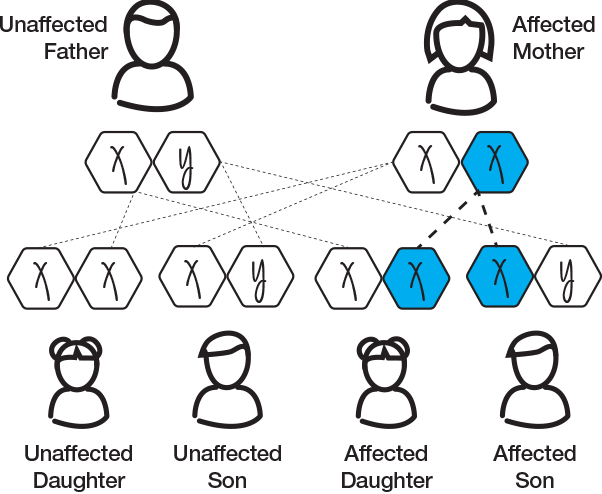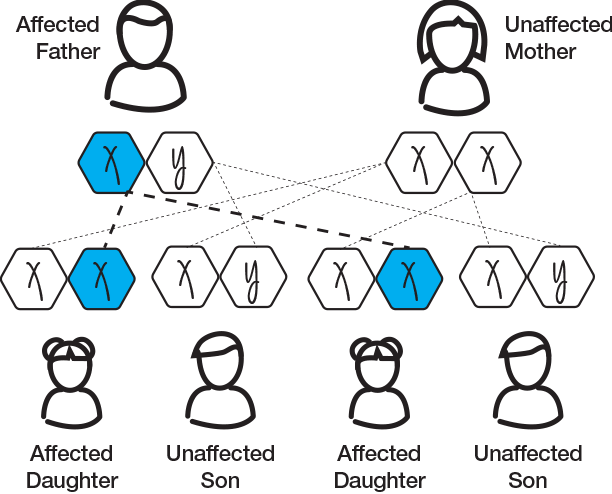The genetics and inheritance of Fabry mean that it is possible you have family members with a Fabry mutation.1 You may have had the mutation passed on to you from a parent, and it may have been passed on to others in the family as well. 1,2 In rare cases, the Fabry mutation is unique to the individual. 3
Why is it important to talk to your family about Fabry?
Fabry is caused by genetic mutations located on the X chromosome. 2 Men and women can both be affected by Fabry, but the likelihood of a father or a mother passing down the Fabry mutation is not the same – it all depends on the chromosomes they pass on to their children. 4,5
A mother affected by Fabry disease has a 50:50 chance of passing the Fabry mutation on to any of her daughters or sons: 1
- This is because the mother has two X chromosomes, and either the X chromosome with the Fabry mutation or the X chromosome without the Fabry mutation could be passed on to her children
- Which X chromosome is received is completely random, so it could be that a mother passes the Fabry mutation to all or none of her children, and any combination in between

What is a genetic mutation? 6
Genetic information is stored in DNA, providing instructions that tell every cell in your body what to do. Mutations can occur in DNA; these are errors in the instructions.
A father affected by Fabry disease will pass the Fabry mutation on to all of his daughters but none of his sons: 1
- This is because the father only has one X chromosome that must contain the Fabry mutation – his daughters will inherit this, but his sons won’t (they will inherit his Y chromosome)

References:
1. Laney DA & Fernhoff PM. J Genet Counsel. 2008:17:79-83 2. Germain D. Orphanet. J Rare Dis. 2010;5:30 3. Desnick RJ et al. Ann Intern Med. 2003;138(4):338-46 4. Laney DA, et al. J Genet Couns. 2013;22(5):555-564 5. How is Fabry Disease Inherited. National Fabry Disease Foundation. Available at: https://www.fabrydisease.org/index.php/about-fabry-disease/fabry-disease-inheritance (Last accessed March 2025) 6. Genetic, rare and undiagnosed conditions explained. Genetic Alliance UK. https://geneticalliance.org.uk/support-and-information/about-genetics/ (Last accessed March 2025)